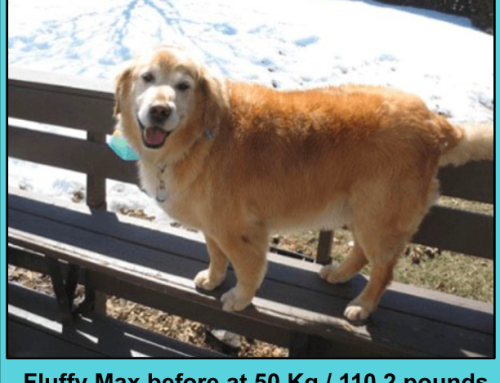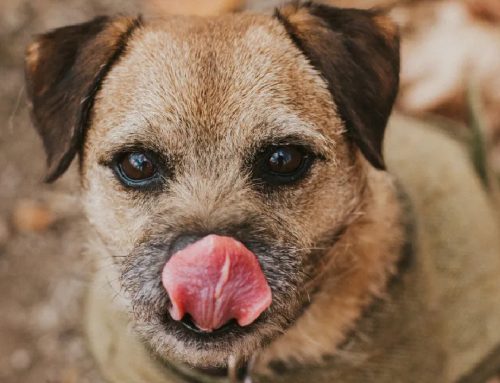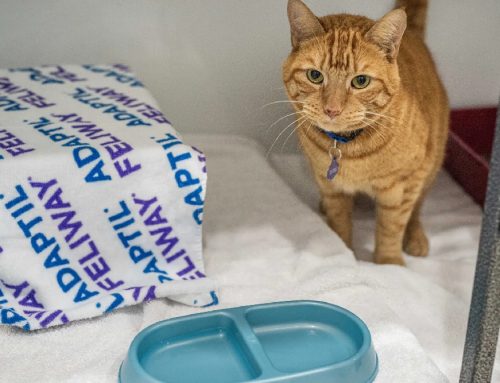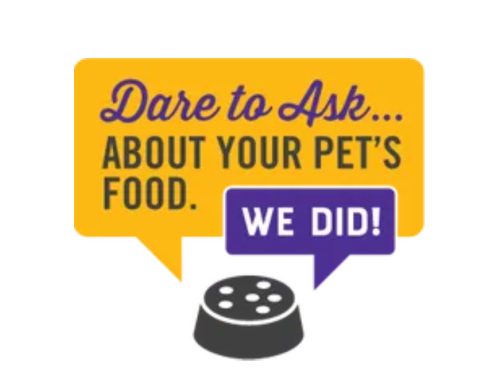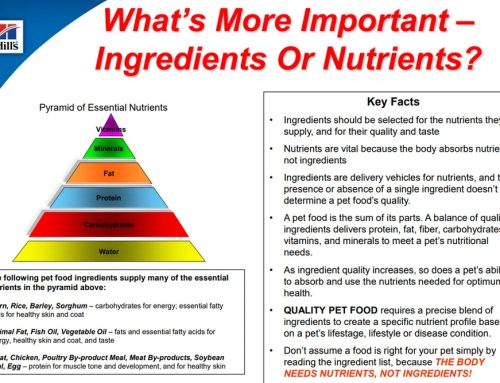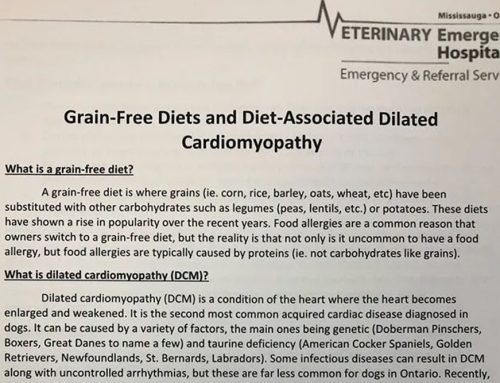DEBUNKING THE MYTHS BEHIND RAW DIETS
Myth: Dogs are related to wolves, therefore a raw diet is more natural.
Truth: Domesticated dogs are not directly related to current Wolf species. Dogs and wolves are “canids”, they share a common ancestor. Also remember, wolves only live for up to 5 years in the wild, out dogs will hopefully live for 10-15 years.
Myth: Dogs should eat an only meat based diet as they are carnivores.
Truth: Through evolution domesticated dogs are significantly genetically different to wolves – including 3 gene changes that facilitate the digestion and utilization of starches. The ability of domesticated dogs to digest and utilize grains (including starch) has been demonstrated in several studies. Grain / gluten allergies in dogs is actually extremely uncommon, your dog is more likely to be allergic to chicken than to grains.
Myth: The “nutritionist” at the pet store informed me that raw diets are nutritionally complete.
Truth: Nutrition is a very complex topic A high quality pet food requires a precise blend of ingredients to meet a specific nutrient profile based on a pet’s life stage, lifestyle of disease condition. Unfortunately, there are several people who claim to be pet nutritionists despite having minimal training. Veterinary nutritionists are veterinarians who have undergone a medical specialization in all things related to your pet’s dietary needs. Surprisingly, veterinary nutritionists are few and far between. Research the company making your dog’s food, and find out who has formulated the recipes. Make sure that a veterinary nutritionist is the one formulating all recipes, so you know your dog will be receiving an optimal diet.
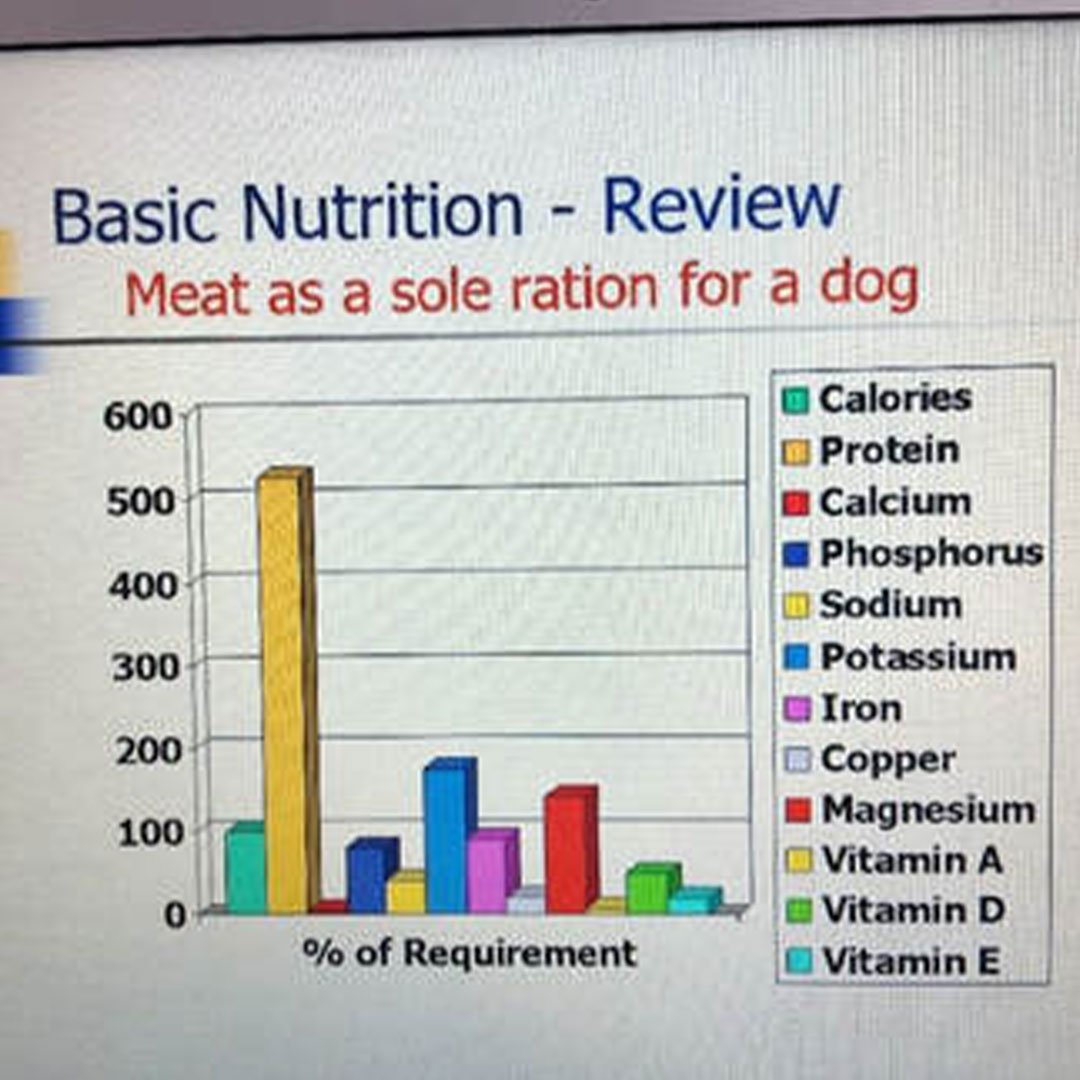
The American College of Veterinary Nutrition provides a directory of all board certified veterinary nutritionists. They ensure that these nutrients are delivered to your pet in the right ratios for their stage of life. Analysis of raw food diets has shown significant nutritional deficiency (eg Calcium), imbalance (eg Calcium to Phosphorus ratio) and in some cases toxicity (eg Vitamin A). Raw diets have been linked to Dilated Cardiomyopathy in both dogs and cats.
Myth: There is no increased risk in feeding raw, commercial kibble has been recalled for pathogens as well.
Truth: When food-bourne infections are contracted from commercially cooked foods it is due to accidental contamination, whereas raw meats are known to carry pathogenic organisms. Feeding raw increases exposure to potentially poses potentially life threatening risks to pets and people.
Myth: By freezing the raw diet it makes it safe to eat.
Truth: Freezing raw food does not kill pathogens. Freezing does NOT kill Escherichia Coli, Listeria, Salmonella, Campylobacter, Clostridia, Norovirus, Bird Flu Virus. The FDA has issued public health warnings for handling raw diets. “To prevent infection with Salmonella and Listeria monocytogenes, it is best if you do not feed your pet a raw diet.”
Myth: I practice the same hygiene for when I prepare raw food for myself, why is it different for my dog?
Truth: Your pet lives a very different lifestyle from you. They groom themselves using their tongue which then contaminates their coat with the pathogens in raw diets. They also toilet on your lawn or sandbox where your children play. Your pet handles toys with their mouths, they drool, they lick your face all of these things can spread potentially life threatening pathogens around the environment. Confirmed transmission between humans and pets in families has been reported.
A big part of choosing the right diet for your pet is being able to accurately interpret the label on the back of the bag. You can’t assume a pet food is right for your pet by simply reading the ingredient list, because the nutrients are just as important as the ingredients! Click here to read our article on how to interpret the dog food label and to learn the answer to some commonly asked questions about kibble.
We understand there is a lot of information available and all our clients want is the best for your pets. Pet nutrition is a very complex topic but it forms the foundation of your pet’s medical well-being. We are here to help you be an active and informed part of your pet’s medical health care. If you have questions about finding the correct diet for your pet, talk to us at 905 208 9933
Sources:
Evidence-based Clinical Nutrition – Feeding RAW to Pets by Mike Davies BVetMed Cert VR Cert SAO FRCVS. RCVS Specialist in Veterinary Clinical Nutrition (Small Animal) WebinarVet
Get the Facts! Raw Pet Food Diets can be Dangerous to You and Your Pet

